Interview with Myrna Shiboleth, author of Tails of Sha'ar Hagai
 Myrna Shiboleth is an animal behaviorist, world champion dog breeder and international dog show judge, and is acknowledged as the world authority on Canaan Dogs, one of the few remaining breeds of feral dogs in the world. After growing up in the U.S. and receiving a degree from Northwestern University in art, she made a radical change in her life by emigrating to Israel. She has worked at a variety of animal related occupations over the years, including stable manager and riding instructor, kennel manager and dog trainer, advisor on dog behavior to the Israel Defense Department, keeper and animal trainer at the Safari Park, and more. Her previous book, The Israel Canaan Dog, has been published in two editions. She lives and breeds Canaan Dogs and collies at Shaar Hagai Farm in Israel, lectures and instructs in Israel and abroad on a wide variety of dog related subjects, writes for professional publications in Israel and abroad, and continues to enjoy new adventures with her dogs. You can visit her websites at www.sephirotpress.com, www.canaandogs.info and www.collie-israel.com.
Myrna Shiboleth is an animal behaviorist, world champion dog breeder and international dog show judge, and is acknowledged as the world authority on Canaan Dogs, one of the few remaining breeds of feral dogs in the world. After growing up in the U.S. and receiving a degree from Northwestern University in art, she made a radical change in her life by emigrating to Israel. She has worked at a variety of animal related occupations over the years, including stable manager and riding instructor, kennel manager and dog trainer, advisor on dog behavior to the Israel Defense Department, keeper and animal trainer at the Safari Park, and more. Her previous book, The Israel Canaan Dog, has been published in two editions. She lives and breeds Canaan Dogs and collies at Shaar Hagai Farm in Israel, lectures and instructs in Israel and abroad on a wide variety of dog related subjects, writes for professional publications in Israel and abroad, and continues to enjoy new adventures with her dogs. You can visit her websites at www.sephirotpress.com, www.canaandogs.info and www.collie-israel.com.Welcome to The Writer's Life, Myrna. Can you tell us a little bit about yourself and how long you’ve been writing?
My life pretty much revolves around animals and in particular dogs, and I have done almost everything with them – showing, training, breeding, lecturing and teaching about them. I also managed to raise a very successful daughter, and have three grandchildren, very talented and special, of course – that Jewish grandmother gene kicked in as soon as the first one was born. I have been writing pretty much all my life, but mostly articles for professional purposes. I have a previous book that has been published in two editions, The Israel Canaan Dog, but this is my first venture at writing something that is not serious and educational, but entertaining – hope so, anyway!
Can you please tell us about your book and why you wrote it?
Imagine a typical “Jewish American Princess” finding herself, inadvertently and to her own astonishment, a “pioneer” in Israel. From a comfortable upper middle class metropolitan life, she is transplanted to living in a modern day wilderness, without electricity or telephone, trying to make a living working with dogs, horses, and other animals (not a particularly respected or profitable profession in this part of the world), and to cope with the very foreign Middle-Eastern mentality. That girl was me, and I (apparently a masochist through and through) am still in Israel, after years of struggle, smiles, tears, and adventures, telling the story of my attempts to survive life in Israel under conditions totally different from any I had experienced before or from anything I might have expected. The only things that enabled me to survive were an invincible stubbornness and a sense of humor.
The book begins with an introduction to Shaar Hagai, an overgrown and long abandoned group of buildings dating from the British mandate, perched on a hillside over the main road between Tel Aviv and Jerusalem. The next few chapters explore what brought me to this point in my life – family background and an unexplainable attraction to animals and odd lifestyles.
Moving to Israel is just the start of a series of adventures. Coping with a strange and totally different mentality as I try to support myself doing the things I love – but which are not so acceptable in Israel, especially when done by a woman - result in some very strange and funny experiences. There are many animals sharing my life – first and foremost are the many and varied dogs, but there are also raccoons, cats, gazelles, geese, goats, sheep, horses, and Baba the striped hyena. And of course, the varied people that are part of this world – “sabras”, abrasive and hard to understand for an American born and bred, Arabs from the nearby village, other immigrants from varied countries – all a challenge. Marriage and raising a family Israeli pioneering style is part of life at Shaar Hagai, as well as having to cope with various disasters ranging in seriousness from a badly leaking roof to a major forest fire.
There are also adventures outside of Israel – three years spent in the heart of Africa as the unconventional wife of a career diplomat, and some rather unorthodox trips to Europe and other more exotic destinations, accompanied by a pack of dogs and non-conformist friends.
Life at Shaar Hagai has never been easy – but it has certainly never been boring! I found, over the years, that the only way to survive and stay reasonably sane was not to take myself too seriously. Tails of Shaar Hagai is a humorous look back at my life – a life very different from what is experienced by most.
Actually, I wrote this book for myself. I wanted to preserve all the adventures I have had over the years, and thought that writing them down would be the best way. Then I could pass the stories on to my grandchildren. Once I started writing and re-reading what I had written, and letting friends read parts of it, I realized that it actually was pretty good and quite funny, and that maybe I could become the James Herriot of Israel. Who knows?
What kind of research was involved in writing Tails of Shaar Hagai?
The only research is having lived all these experiences myself.
Has it been a bumpy ride to becoming a published author or has it been pretty well smooth sailing?
Bumpy enough to make me seriously seasick! I naively thought that writing a book was the hardest part. I quickly discovered how wrong I was. Getting the book published took considerably longer than writing it, and was considerably more stressful.
For this particular book, how long did it take from the time you signed the contract to its release?
Not very long, only about eight months.
Do you have an agent and, if so, would you mind sharing who he/is is? If not, have you ever had an agent or do you even feel it’s necessary to have one?
When I finished writing the book and started trying to get it published, I was told that no publisher will look at a book that is not represented by an agent. So I started looking for an agent, getting lists from the numerous books and websites that are out there to help the naïve and inexperienced. After being ignored by many and turned down by the rest, I finally found an agency that was enthusiastic about my book – what joy! After two years or so of paying them various small fees, which added up in total to not such a small amount, and receiving in return lists of publishers that had supposedly turned the book down (“But we think so-and-so will be interested and we will submit again…”), I discovered that this agency was a total fraud. Being incurably stubborn, I did not despair totally from this debacle, and finally did manage to find a publisher. I know there are plenty of good agents out there, and I am sure that it would have made contacts with publishers much easier, but it seems that it is just as hard to find one as it is to find a publisher.
Do you plan subsequent books?
I can’t say that I am really planning any, since I didn’t really plan this one. But since I do plan to continue having adventures in life, I am sure there will be more to write about.
Can you describe your most favorite place to write?
I write in my bedroom, where I have a small desk and my computer. It is quiet and comfortable, and has a window with a great view.
If money was no object, what would be the first thing you would invest in to promote your book?
Television promotion, that seems to be the most influential of the media these days.
How important do you think self-promotion is and in what ways have you been promoting your book offline and online?
Self-promotion is, without a doubt, very important. There are so many books out there! It is important to find a way to attract attention, to alert potential readers to the fact that the book exists and that they will enjoy it, and making use of every possibility to reach those readers is valid. I have never been good at talking about myself or self-promoting, but I am learning! The internet has great potential, and I am trying to find more ways to make use of it; I have made use of e-lists, Facebook, announcements on websites, mailing lists, and so on. Also reviews and articles in newspapers and magazines are important. Since I live in Israel, tours and book signings are not very relevant, but I think they would be very useful should I have a chance to do them. I am still a novice at book promotion, but hope I am making progress.
What’s the most common reason you believe new writers give up their dream of becoming published and did you almost give up?
New writers don’t realize how really difficult it can be to get published. There is a feeling that the hard part, the labor of creating and polishing your work of art, is over, and now the rewards will come. When it turns out that getting the book published is much harder than writing it, it is easy to become discouraged and to despair of ever succeeding. There were times when I was ready to give up, when I felt that I was just wasting time and energy searching for potential publishers, but somehow I always came around to trying again. And in the end, it was worth it. There is nothing quite like holding the first copy of your published book in your hands!
Any final words of wisdom for those of us who would like to be published?
Be stubborn! Don’t give up! It is easy to start losing faith in your work after a few rejections. But persistence wins out in the end – there are many examples of writers that had books rejected many times, and ended up with a best seller.
Thank you for your interview, Myrna. I wish you much success!
Thanks for the opportunity!






















































































































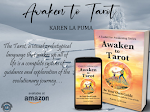






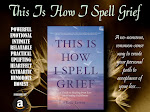
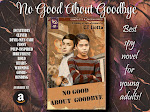


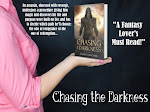
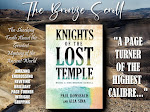





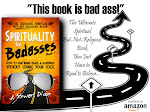




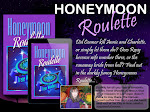

















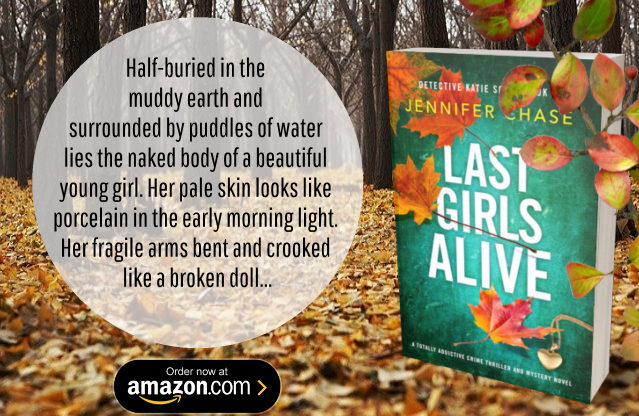








Leave a Comment